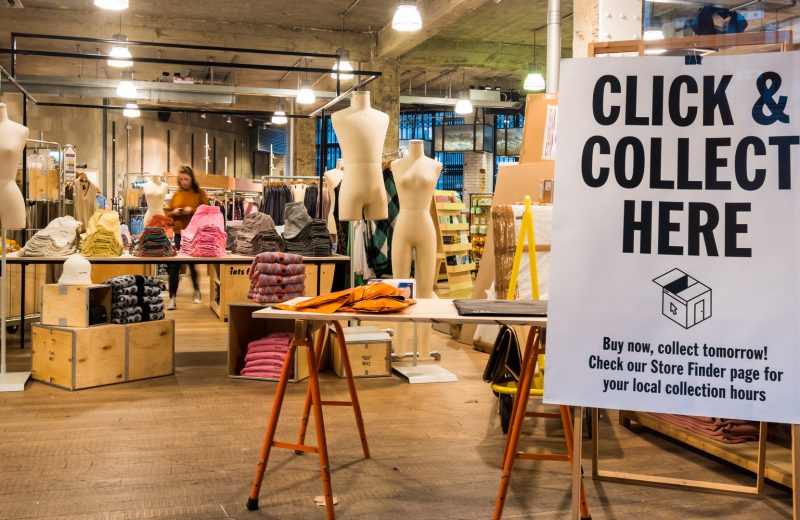South-East Queensland retailers have been facing increased scrutiny over the past several days as to whether they should be open during lockdown.
NRA Chief Executive Officer Dominique Lamb reminds retailers that according to current health directions, there is no definition of essential retail.
“Brisbane retailers have shown that they are wanting to do the right thing, and there is confusing messaging surrounding what the right thing is,” Ms Lamb said.
“Despite messaging in yesterday and today’s press conferences, the current health directions do not outline an essential retail list.
“Right now, according to the Queensland Health website, it is only mandated for retail food services (cafes, restaurants, bars) to offer takeaway, and for personal and beauty services to close. No such restrictions are outlined for general retail.
“To help provide surety for our retailers, we have called for a list of what’s considered essential and what isn’t that will help guide both workers and employers.”
Currently, the Schedule for businesses that must not operate in the Restrictions for Locked Down Areas (South-East Queensland) Direction (No. 2) is as follows:
SCHEDULE 3 – BUSINESSES THAT MUST NOT OPERATE, UNLESS FOR A LIMITED PURPOSE IN COLUMN 2
| Column 1 | Column 2 |
|---|---|
| Business, activity, undertaking, premises or place that must not operate unless permitted in column 2 | Exceptions |
| Schedule 3A – (hospitality businesses) | |
| Food and drink | |
| Retail food services (including cafes, restaurants, fast-food outlets) |
The following retail food services can also continue:
|
| Food courts |
|
| Entertainment venues | |
| Pubs, licensed clubs, RSL clubs, function centres, bars, wineries, distilleries and microbreweries, and licensed premises in hotels |
|
| High risk businesses, activities and undertakings | |
| Nightclubs | |
| Schedule 3B – other businesses | |
| Retail | |
| Outdoor and indoor markets |
|
| Auction houses | |
| Real estate auctions and open house inspections |
|
| Beauty and personal care services | |
|
|
| Entertainment venues | |
| Casinos, gaming or gambling venues including wagering outlets that are open to, and accessible by, members of the public | |
| Major Sports Stadiums | |
| Concert venues, theatres, auditoriums and cinemas | |
| Convention centres
Show grounds |
|
| Theme parks, outdoor amusement parks, tourism experiences and arcades | Live aboard and passenger vessels where passengers are accommodated overnight MUST NOT operate to commence a new voyage. |
| Indoor play centres | |
| Events | |
| Indoor events
(Example – cultural festivals, expos, conferences) |
|
| Outdoor events
(Example – marathons, cultural festivals, fetes, expos) |
|
| Leisure and recreation | |
| Gyms, health clubs, fitness centres, yoga, barre, spin facilities dance studios, boot camps and personal training | Boot camps and personal training may operate with a limit of two people outdoors, including the trainer, and with physical distancing observed, and only within 10 km from the home of the person and the trainer. |
Indoor sports
|
|
| Outdoor social sporting-based activities, outdoor community sports and outdoor sporting centres or venues | |
Indoor swimming pools and Outdoor swimming pools
|
The following are permitted to operate:
|
| Public playgrounds, skate parks, BMX tracks and outside gyms, including static exercise equipment in Council parks | |
| Public barbeques (such as barbeques in public spaces or shared facilities) | |
| Residential facilities | |
| Hostels, bed and breakfasts, backpackers, boarding houses | Permitted to operate but limited to 1 person per 2 square metres in common areas.
Contact information must be collected. Note – facilities that accommodate seasonal workers must comply with the Seasonal Workers Health Management and International Quarantine Plans Direction (No. 2) or its successor |
| Short term rentals and short term accommodation (for example, serviced apartments including holiday rentals, holiday accommodation or hosting accommodation provided through online booking platforms) | Permitted to operate but limited to 1 person per 2 square metres in common areas.
Contact information must be collected. Note – facilities may also need to comply with the Seasonal Workers Health Management and International Quarantine Plans Direction (No. 2) or its successor |
| Outdoor recreation | |
| Caravan and camping parks | Permitted to operate but limited to 1 person per 2 square metres in common areas.
Contact information must be collected. |
| Zoos, aquariums and wildlife centres | |
| Non-residential institutions | |
| Galleries, museums, national and state institutions and historic sites | |
| State and local government libraries | |
| Community facilities (such as community centres and halls, recreation centres, youth centres, community clubs, RSLs, PCYCs) excluding any dining, gaming or hospitality business in the facility |
|
| Wedding ceremonies |
|
| Funerals |
|
| Other religious and civil ceremonies, places of worship | Live streaming of a service may be conducted with the person conducting the service and a camera operator. |
| Universities and other higher education institutions such as TAFEs and RTOs | Face-to-face learning is not permitted. Live streaming of classes may be conducted. Otherwise, may operate as a workplace that is a non-restricted business, activity or undertaking.
Example – research institutes or other university functions that are not face-to-face teaching |
| Professional and elite sport | |
| Professional sporting codes, elite sport, elite athletes | Professional and elite training may occur without spectators, with physical distancing observed to the extent possible. Games, matches and trials may not take place. |
| High risk businesses, activities and undertakings | |
| Adult entertainment venues (strip clubs), brothels, sex on premises venues and sole operator sex workers | Sole operator sex workers may continue to provide online or phone services.
Example – video streaming or phone chat services. |

